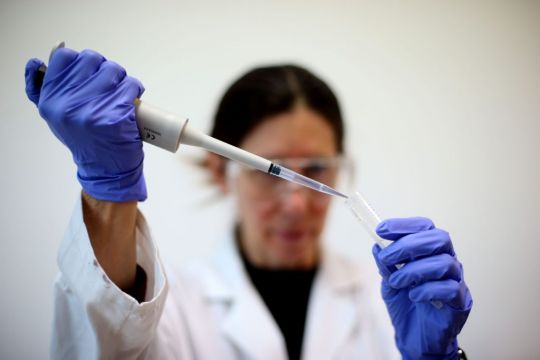There have been a further 1,292 confirmed cases of Covid-19 in Ireland, the Department of Health has said.
As of Thursday morning, there were 331 patients in hospitals with the disease, while the numbers in intensive care units have dropped by two, to 54.
The update comes as the Health Protection Surveillance Centre (HPSC) published its first weekly analysis of Covid-19 in sewage.
It shows the virus is strongly present in all parts of the country and that its prevalence is growing. Since monitoring began in May, the number of wastewater facilities showing high levels of Covid-19 in the community has increased from 13 to 67 in August.
All 67 wastewater facilities tested by the HPSC showed evidence of Covid-19 in the community. The 68 facilities that are being monitored supply water to 84 per cent of people in the State. Shanganagh in south Dublin did not report for the first week of the monitoring.
Particles of the virus are to be found in human waste, though the virus is not known to be transmitted through wastewater, and the viable virus has never been detected in untreated or treated sewage.
However, higher levels of Sars-CoV-2 in wastewater suggests more people with Covid-19 infection in the wastewater catchment area.
Booster jabs
Meanwhile, health officials have recommended that anyone aged 80 and over will be eligible for a booster jab.
On Wednesday, Minister for Health Stephen Donnelly said the National Immunisation Advisory Committee (Niac) had recommended that booster vaccines be provided to residents of nursing or care homes aged 65 and over, as well as anyone aged over 80.
Niac has said that everyone eligible for a jab will receive an mRNA vaccine.
Chief medical officer Dr Tony Holohan has endorsed the recommendations.
The booster jab will be given if at least six months have passed since a person has been fully vaccinated.
The Department of Health said that Niac had considered the latest evidence on decreasing immunity and the effectiveness of vaccines against the Delta variant.
Mr Donnelly said: “Once again this week, we have seen some of the necessary public health restrictions eased thanks to the enormous efforts the Irish people have made to continue to follow the public health advice and, in particular in relation to our amazing levels of vaccine uptake.
“Vaccination remains our pathway out of this pandemic.”
He said that the latest decision would ensure that Ireland continues “to prioritise our most at risk loved ones from the risks posed by Covid-19”.
Mr Donnelly did not provide a timeframe for when people would begin to receive the booster jabs but said it would take a “short period of time”.







